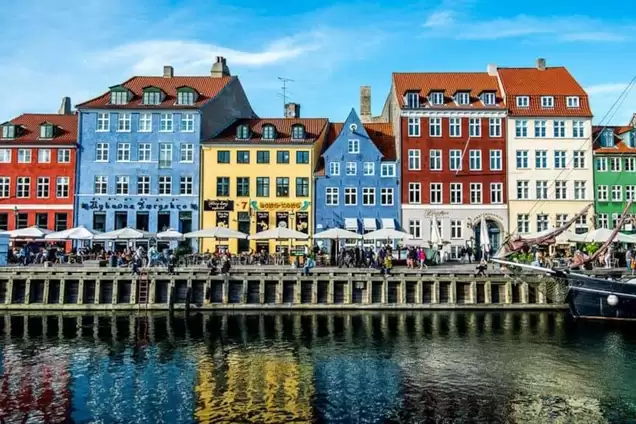
In the European capital, you can get free meals and excursions: tourists were told how
1
The authorities of Copenhagen, Denmark, have come up with a way to reduce the burden on the environment from tourism and at the same time encourage the tourists themselves to behave more consciously in the city.
As CNN writes, the pilot program, which was named CopenPay, started working on July 15. You can use it until August 11. Tourists are encouraged to “convert green actions into currency for cultural experiences”.
How does it work? For example, visitors to the city can collect their plastic waste and bring it to the National Gallery of Denmark. For this, they will get access to a workshop where they can make their own work of art from this waste. A separate reward is provided for those who use a bicycle or public transport. If you approach the city thermal power plant in this way, you will be able to go down the artificial ski slope, which is located on its roof and is a local attraction, for free.
“CopenPay rewards activities like cycling, cleaning up or volunteering at urban farms, giving access to a variety of rewarding experiences and everyday wonders of Copenhagen. These include free museum tours, free kayak rentals, and even a free vegetarian lunch prepared from local cultures,” the Wonderful Copenhagen travel agency said in a statement.
It is the architecture and local gastronomy that most attract visitors to Copenhagen. And also a safe environment and good ecology. The city has 382 kilometers of bike lanes and 62% of its residents cycle to work.
The CopenPay program helps tourists experience this local culture of environmental care for themselves. They can acquire unusual experiences and learn responsible consumption at the same time.
At the same time, CopenPay does not have a complex system of use. It is based on trust. For example, a tourist just needs to present a public transport ticket to receive his reward.
Currently, more than 20 sites in the city participate in the program. If the project is successful, it is planned to extend it for the whole year. “We have to transform tourism from an environmental burden to a force for positive change, and one of the important steps in this transformation is to change how we travel to our destinations, what we consume and how we interact with local people,” said Mikkel Aaro Hansen. , CEO of Wonderful Copenhagen, in a statement.









Leave a Reply